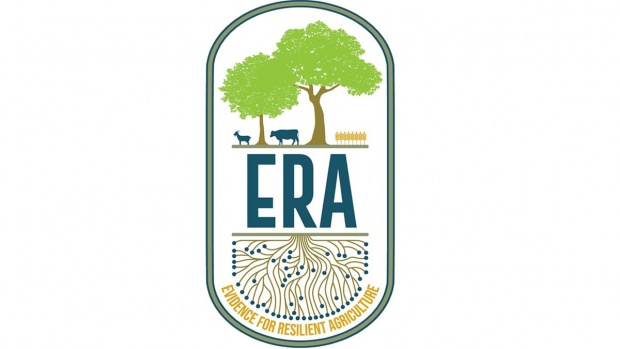Once they’re able to understand expected shifts in production, livelihoods or environmental outcomes, farmers can adapt resource management strategies and be better prepared to manage risks. Built around the largest agricultural meta-analysis to date, ERA is designed to support science-based decision-making and the identification of locally adapted but scalable options.
What do small-scale farmers, private-sector investors, development partners, and policy-makers have in common?
They all need robust evidence to inform activities and management decisions and ultimately get more bang for their efforts. Understanding the outcomes of changing farm management has been the central question for agricultural research for development for more than 50 years. Still today, however, these data are not used as widely by policy makers, program designers and farmers as it could be. This information is arguably needed now more than ever.
Related topics: Data Driven Agriculture – Democratizing Data for Rural Businesses – Harnessing the Power of Digital Data
Management practices and technologies are important building blocks of resilient agriculture; regional and national policies, climate-smart services, and investments are built around how farms are managed. Access to robust information on which agricultural management options work where and at what costs can better equip program developers and implementers to facilitate changes in how agriculture is practiced. Being able to understand expected shifts in production, livelihoods or environmental outcomes, farmers can adapt resource management strategies and be better prepared to manage risks.
Actions speak louder than words
Despite extensive talk about data for decisions, unfortunately bringing agricultural research to the table hasn’t been a principle objective of the research community. Though significant agricultural research has explored ways in which practices produce changes in productivity, farmers’ income, livelihoods and the natural environment among others over the past 50+ years, little efforts have been put forth to systematically compile the evidence available and to translate big piles of data into relevant information to relevant users. Systematic reviews and meta-analyses target only limited numbers of crops and management practices, often ignoring the vast numbers of ways farmers manage their land and program managers and investors design projects.
Since 2012, scientists at the World Agroforestry (ICRAF) have been working on ways to deliver information needed. The result is the big-data platform, “Evidence for Resilience Agriculture”, also known as ERA. Built around the largest agricultural meta-analysis to date, ERA is designed to support science-based decision-making and the identification of locally adapted but scalable options.
What is ERA?
ERA was born out of the need for robust information on what kind of agricultural technologies work at different locations, and on the effects of shifting from one technology to another on yields, net returns, resource use efficiency, biodiversity, among many other outcomes.
ERA currently includes about 75,000 data points collected from 1,400+ peer-reviewed scientific studies conducted across Africa, which describe the impacts of 100+ agricultural technologies on more than 50 indicators of agricultural productivity and resilience (e.g., net returns, yield stability, soil carbon, resource use efficiency). This core is supplemented with 11 datasets on climate, soil and social information, that help to build context for practices’ performance.
What can ERA do and for whom?
ERA is all about decision-useful information. It provides users with the tools to navigate through menus of agricultural practices and analyze their performance, allowing to determine what works where, based on pre-select filters. Currently, users are able to:
- Examine outcomes of practices and associated agricultural products, at different levels of aggregation (pillars, indicators). The analysis provides insights into the extent to which a management practice produces changes in productivity, resilience, and mitigation outcomes, compared to a conventional practice.
- Assess climate-smartness. Users may filter for specific practices, products or environmental conditions to examine the degree of change that select practices (in solo or combinations) produce on resilience, productivity, and mitigation, when compared to conventional practices.
- Identify interactions between practices. By selecting a focal practice, users can explore how it bundles with other practices and so maximize outcomes, under given environmental conditions and subsets of products.
- Discover synergies across expected outcomes. When selecting various management practices, products and agroecological zones of interest, users can examine whether these produce win-win, lose-lose or trade-off results for productivity and resilience.
In short, ERA presents a multitude of opportunities for those with the capabilities to exploit the insights available. Its hierarchical structure allows data to be aggregated and disaggregated to any level demanded, making it relevant to different users. Policymakers, interested in management practices and their performance, can use ERA for setting priorities. Extension agents, development partners and institutions facilitating farmers’ access to services require more granular information; assessments of the different impacts of sub-practices on very specific outcomes (yields, soil fertility, etc.) will help them develop informed site-specific recommendations and interventions.
The die has been cast. What’s next?
A beta version of the ERA tool was launched on October 9, 2019, within the gambit of the 5th Global Science Conference for Climate-Smart Agriculture. With the help of next users, partners and a team of dedicated researchers, ERA will continue to grow, time and resource permitting. Opportunities for future work include, but not limit to: improvements in platform’s functionality and development of training materials for users; consolidation with newly published research to ensure information does not become stale; integration of research conducted in French and/or Spanish and expansion of ERA to Asia, Latin America; inclusion of non-peer reviewed data resulting from participatory experiments and qualitative research (e.g., CCAFS’ Climate-Smart Villages); and collaboration with new users to design and implement new use cases.
To find out more,
visit the ERA web page: https://era.ccafs.cgiar.org. For queries and suggestions regarding ERA, contact icraf-era@cgiar.org.
About the author: Andreea Nowak is a Research Fellow at World Agroforestry (ICRAF).
EDITOR’S NOTE: The opinions expressed here by Impakter.com columnists are their own, not those of Impakter.com. Photo Credit: CGIAR










